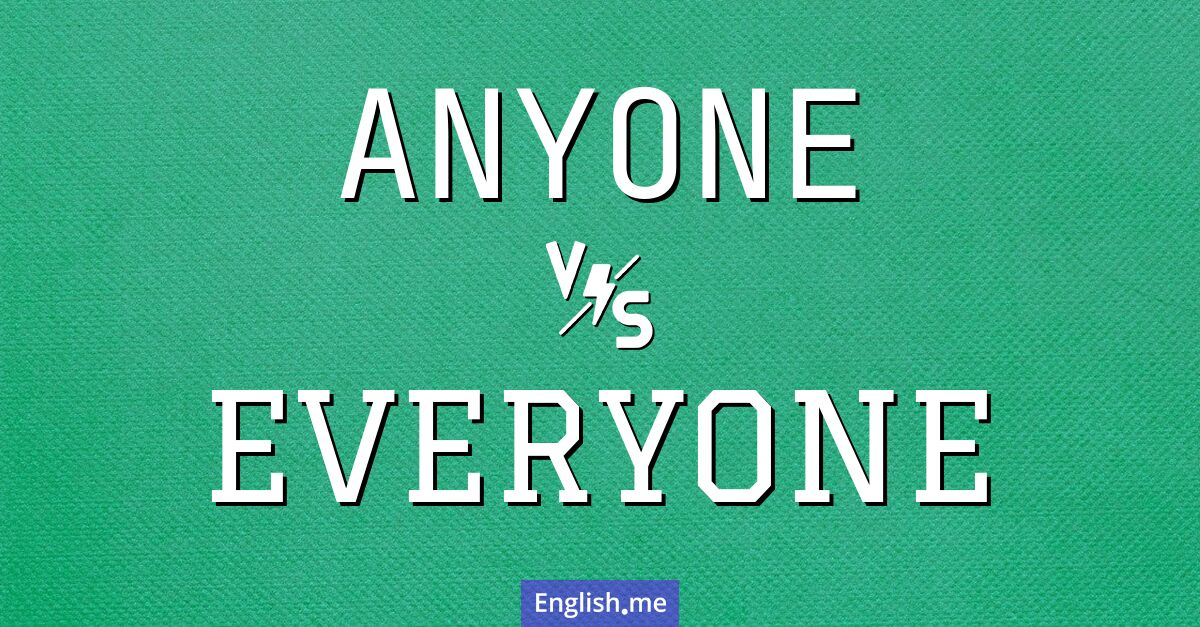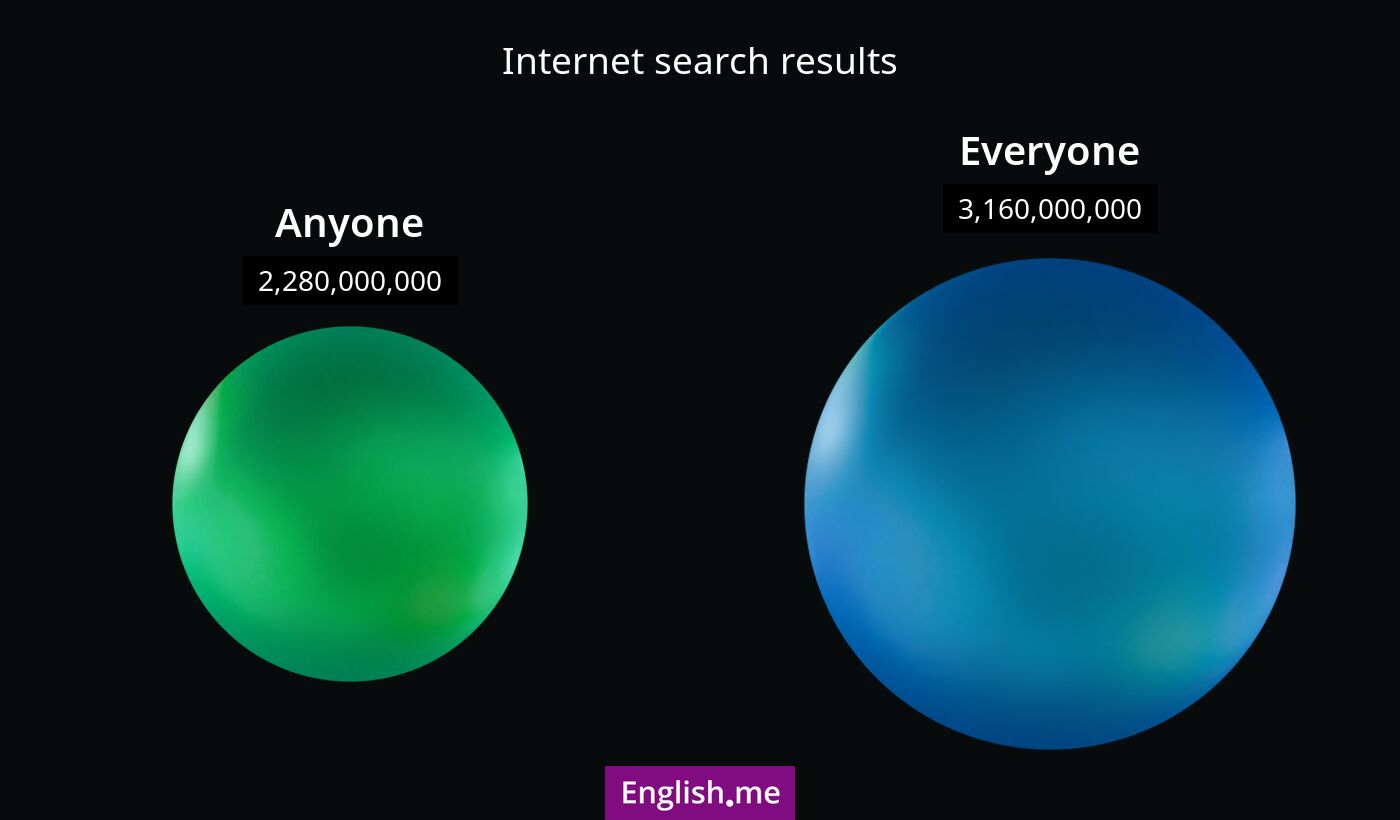"Anyone" vs. "everyone": key distinctions in meaning
Reviewed and edited by  Anwar Kareem 30/12/2024, 03:07
Anwar Kareem 30/12/2024, 03:07
English.me team member

 What is similar?
What is similar?
Both "anyone" and "everyone" are pronouns used to refer to people in general and are not specific to a particular individual.
 What is different?
What is different?
"Anyone" refers to an unspecified person, typically implying any single person without specification, whereas "everyone" refers to all individuals collectively in a group.
 Which one is more common?
Which one is more common?

 Examples of usage
Examples of usage
Anyone- Can anyone help me with this task?
- Is there anyone who knows the answer?
- Anyone is welcome to join the meeting.
- Everyone needs to submit their reports by Friday.
- Did everyone enjoy the party?
- Everyone in the class passed the exam.

 English
English español
español française
française italiano
italiano deutsche
deutsche 日本語
日本語 polski
polski česky
česky svenska
svenska Türkçe
Türkçe Nederlands
Nederlands